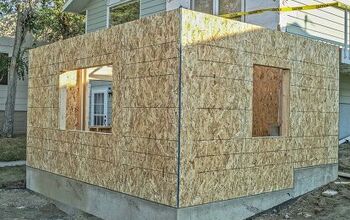Furnace Blower Motor Making Noise When Starting? (Here's Why)

Your furnace is a complicated piece of equipment. There are a variety of components within that run in tandem with one another to ensure that your home can remain comfortable and warm even when temperatures are below zero.
From time to time, you may notice that the furnace blower motor is making a noise when it starts. While they are annoying, they can be a sign of a greater issue. If you hear thumping, screeching, or humming, it could be a sign that the fan blower is either damaged or worn down.
Do You Need a Furnace Repair Contractor?
Get free, zero-commitment quotes from pro contractors near you.

What Does the Blower Motor Do?
Before we talk about what is causing those annoying and troubling sounds, it’s important to first understand what the blower motor does in the first place. To put it simply the blower motor is one of the most important components in the furnace.
Its sole job is to distribute the warm air created by the gas valve through the vents and into your home. Without it, you don’t have warm air distributed through your home. Without the blower motor, you are left with a chilly home.
Why is it Making Noise at Startup?
When your furnace starts up, there shouldn’t be any discernable noise. It is only when you notice different sounds than normal that you can reasonably suspect that something is wrong. You may notice a thumping, screeching, or humming song. All of those can be signs of potential issues with your blower motor.
- Wear and tear. The most common issue is simple wear and tear or even damage to the fan motor. While there is not a single specific sound that denotes this issue, any one of those sounds can be a good indicator that your blower motor needs to be looked at. In most cases, when there is damage or substantial wear and tear, it will need to be replaced.
- Belt issue. If there isn’t a problem with the furnace motor itself, it could be a problem with a belt. Belts can become worn over time and even break when they hit a certain point of wear. Regular maintenance is a good way to keep an eye on that wear and tear, replacing those components before they stop working.
- Bearings. Another thing to check is the bearings or the parts surrounding the blower motor. There is a chance that the bearings have worn and come loose, or a part nearby is loose as well. Have a service technician take a look to verify the issue.
- No concern. Sometimes there is no issue with the blower motor; it can just be a little loud depending on the age and condition of the furnace. While it may be annoying, there’s nothing to necessarily be concerned about.
What About Other Sounds?
The furnace blower motor is far from the only component within your furnace that can have issues. Being able to identify certain sounds and situations can help you make the necessary repairs in short order. That can mean time and money saved in the long-term.
The bad thing is that there are quite a few other components. Getting used to the different warning sounds can take some time, so keep your ears open and don’t be afraid to schedule preventative maintenance to keep things in working order.
Loud Noise When Igniting
Generally speaking, you should not hear a noise when your gas furnace ignites. When you start hearing a loud sound, particularly a boom or a bang, there are two likely suspects that require checking out. It is important that you do not ignore these sounds; you never know what the issue is until you check it out.
- Expansion/contraction. This is a fairly simple and common problem. Basically, when the furnace starts up, the metal ductwork begins to expand as the air moves through it. It could also be the reason you are hearing a knocking noise as well.
- Air filter. Believe it or not, your air filter is going to be the culprit for a lot of furnace issues. It may seem like such a minor component, but a clogged air filter can cause a lot of problems. Make sure that you replace it monthly in order to prevent any clogging in both the filter and throughout the ducts.
- Delayed gas ignition. This is way more serious than the expansion of the ducts. When this happens, the gas has had time to build up before being ignited. That is the resulting “boom” sound when the gas is ignited. Letting this problem go means potentially damaging the heat exchanger and can be seriously costly to fix.
Furnace Clicking Noises
From time to time, you may notice your furnace is making clicking noises. When you hear that clicking, it can be indicative of quite a few different problems, ranging from fairly common to quite serious. The best bet is to have a service technician come out and inspect the problem and make the according fix.
- Moving parts. One of the most common reasons for clicking is that motor bearings or any other small parts could be moving throughout your furnace. While this isn’t necessarily a large issue, they could become lodged in other components and cause additional damage.
- Inducer fan. After eliminating the possibility of loose components, check out the furnace inducer. When it becomes loose or clogged up with debris and dust, it can make a clicking sound as it runs. Regular maintenance can help prevent these smaller, more annoying issues from happening.
- Ignition system malfunction. This is a major problem. The pilot light may not be working properly, failing to ignite at all. That clicking noise is what you hear when it is attempting to spark a flame.
- Clogged gas valve or ignitor. Both of these may not start out as major issues but can be in short order. Make sure that these are clean and free of debris before trying your furnace again.
- Flame sensor. It could be that the flame sensor is faulty and is shutting the gas off as a safety precaution. With gas components like these, it’s best to leave the troubleshooting to the trained professionals. Potential gas leaks are nothing to play with.
Do You Need a Furnace Repair Contractor?
Get free, zero-commitment quotes from pro contractors near you.

Furnace Making Humming Noises
A low hum is generally nothing to be concerned about. When that humming becomes much louder, though, it can be indicative of a greater problem. Some of these aren’t exactly major while others will require immediate attention.
- Loose ductwork. Air passing through your ductwork can cause vibration within, creating that humming sound that you are hearing. You can try to secure the joints using extra sheet metal screws and even duct tape.
- Failing or worn motor. When you hear a noticeable humming sound, the most common culprit is motor failure. Moreover, it’s a pretty good sign that your furnace is about to stop working entirely. This requires HVAC technician intervention.
- Loose parts. Components can loosen over time due to constant vibrations. The result is that your furnace makes a loud humming noise. Check to ensure that everything is tightened properly before moving on to the next troubleshooting issue.
- Electrical transformer. That humming noise could also be due to the electrical current that moves through the transformer. While it isn’t particularly dangerous, it can be annoying. Try to tighten the bolts that are securing it in place down to cut that humming noise down.
High-Pitched Squealing or Squeaking
The first place to look when your furnace is making a squealing or squeaking noise is the blower speed. Most modern furnaces will let you adjust the blower fan speed. In plenty of cases, it can be that simple to eliminate the annoying high-pitched sound that you are hearing.
There is also a chance that you are hearing air whistling through your vents. That’s because of low return airflow. That means that the blower in your furnace is struggling to pull in the necessary amount of air. Simply clean or replace your dirty air filter first; that is most often the reason for this high-pitched noise. It could also come down to dirty ductwork or even blocked vents.
Preventative maintenance is a great way to keep these high-pitched noises from happening.

Ryan Womeldorf has more than a decade of experience writing. He loves to blog about construction, plumbing, and other home topics. Ryan also loves hockey and a lifelong Buffalo sports fan.
More by Ryan Womeldorf



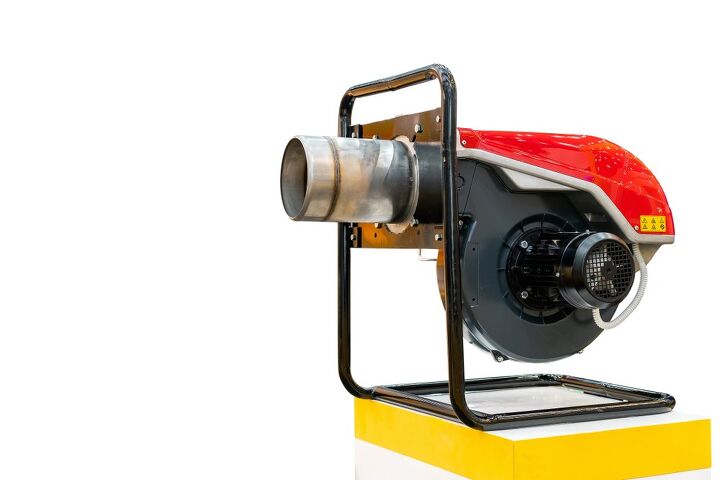






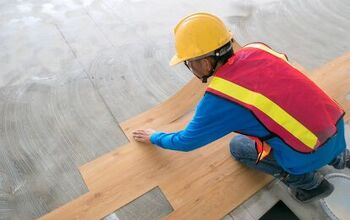
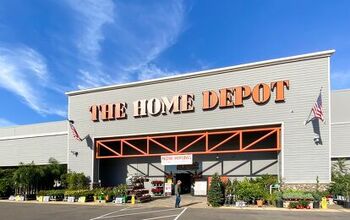

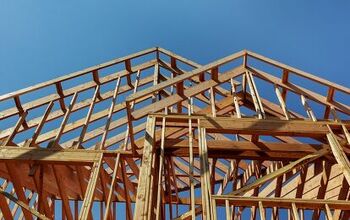
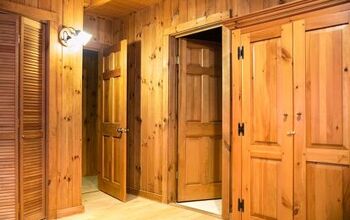


![Cost To Drill A Well [Pricing Per Foot & Cost By State]](https://cdn-fastly.upgradedhome.com/media/2023/07/31/9074980/cost-to-drill-a-well-pricing-per-foot-cost-by-state.jpg?size=350x220)






